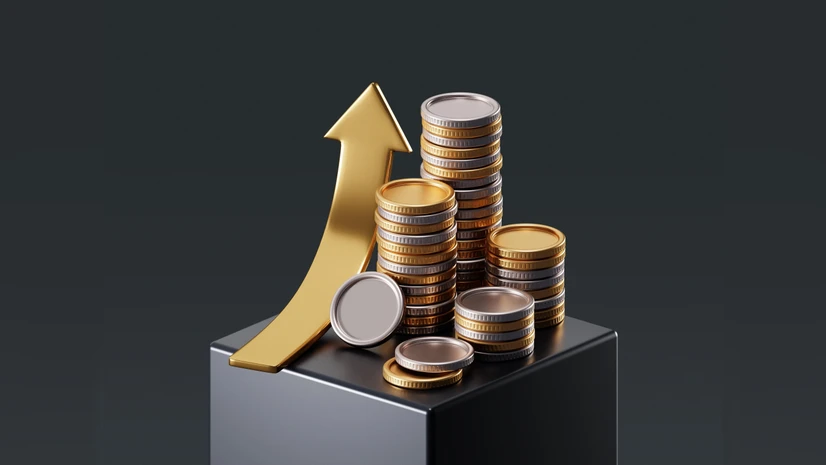The U.S. stock market had been on a roll, hitting record highs and making investors happy. But last week, things changed. Investors pulled a massive $43 billion out of U.S. stock funds in just one week! That’s a huge amount of money.
Why take money out when stocks are doing so well? It might sound odd, but it’s all about being careful. When the market reaches record highs, people start to wonder if it can keep going up. They get worried about a big fall, so they sell stocks to protect the money they’ve made. Some people see this as smart, while others see it as fear, but either way, a lot of money is leaving U.S. stocks.
Recently, big tech companies like Apple, Nvidia, and Microsoft have done very well, helping the market. Also, the Federal Reserve suggested it might lower interest rates, which made people optimistic. And things have been calmer with international trade. All of this made the market look strong. But that’s when investors get nervous. Things don’t go up forever, and no one wants to be the last one in when the market drops.
Big stock and tech funds lost the most money because they had gained the most. Investors who have been making money for months decided it was time to take their profits. One Wall Street person said, “Why wait for the Fed? Why risk losing what I’ve made? I’d rather have cash until things cool down.” Many people felt the same way, which is why so much money left the market.

It’s not only regular people doing this. Big firms are doing it too. Hedge funds, pension funds, and wealth managers often adjust their investments after the market rises a lot. If stocks go up too much, it gets risky. So, they sell stocks, sometimes automatically. For example, if a fund wants 60% in stocks and 40% in bonds, a market increase could push it to 70% in stocks and 30% in bonds. To get back to their plan, they sell billions in stocks. When many funds do this, it quickly adds up.
Just because money is leaving doesn’t mean everyone expects a market crash. A lot of that money is moving to safer investments like bonds, money market funds, or simply cash. Investors are playing it safe, not panicking. They’re saying, “Let’s wait and see what happens.” It’s more about being cautious than fearing a crisis. But these outflows can have an impact on the market. Stock prices can change a lot, and trading can get wild. And it matters for retirement savings. Billions leaving the market in a week can change your balance. It shows how Wall Street affects everyone.
Experts have different opinions. Some think it’s a break the market needs before it goes up again. Others see it as a sign that the good times went on for too long, too fast. Tech stocks are expensive, international risks are still there, and people have different ideas about inflation and interest rates. Also, U.S. elections are coming up, which means there are likely to be more changes. Outflows like this show that investors are getting ready for a bumpy ride.
Big outflows in the past don’t always destroy a rising market. Sometimes they’re just a reset. Investors sell to take profits, the market goes down a bit, and then it goes up again. Other times, they can point to a bigger drop. The thing is, no one knows for sure what’s going to happen. That’s what makes markets both interesting and stressful.
For investors, this can be a scary time. Should you sell? Should you stay invested? Advisors usually say: stay calm, spread out your investments, and don’t try to guess what the market will do. It’s simple advice, but it’s hard to follow when you see billions leaving stock funds. But trying to time the market usually doesn’t work. Many people who sold last year, thinking the rally was over, missed a huge comeback.
Right now, it’s a competition between wanting to make money and being afraid of losing it. The desire to profit pushed the market up for months. Now, fear is making investors pull back. The winner depends on the economy, politics, and how people are feeling. If inflation goes down and the Fed cuts rates, people might become confident again, and the money could come back into the market. If that doesn’t happen, we might see more money leaving, more caution, and maybe bigger drops.
The message right now is clear: investors want to protect their profits. They cashed out because they saw the high prices and decided to be safe. It’s not panic or a collapse, but being careful.
Maybe that’s what’s most human about it all. Markets aren’t machines. They’re driven by people and their emotions. The $43 billion outflow isn’t just a number; it’s about how people are acting. It’s a decision to take a step back, take a breath, and wait.
Whether it’s just a pause or something bigger, one thing is certain: the market’s story is about more than just profits and losses. It’s about feelings. And those feelings are telling investors to step back at least for a while.











